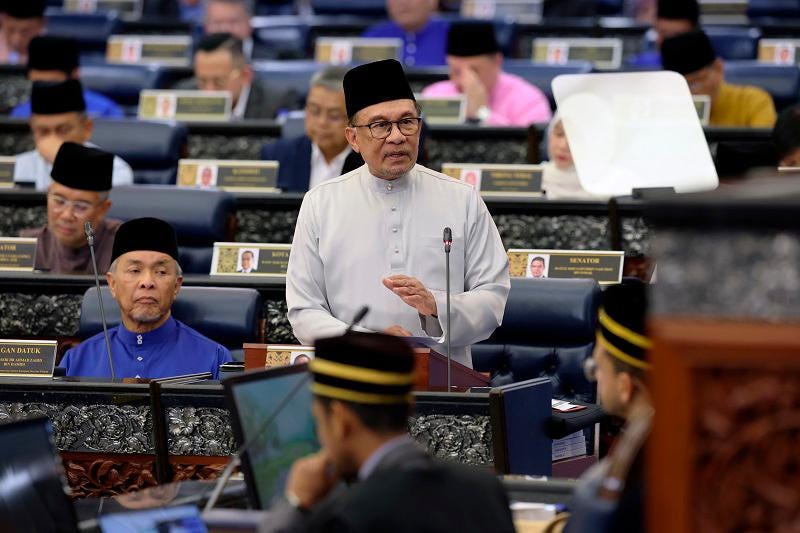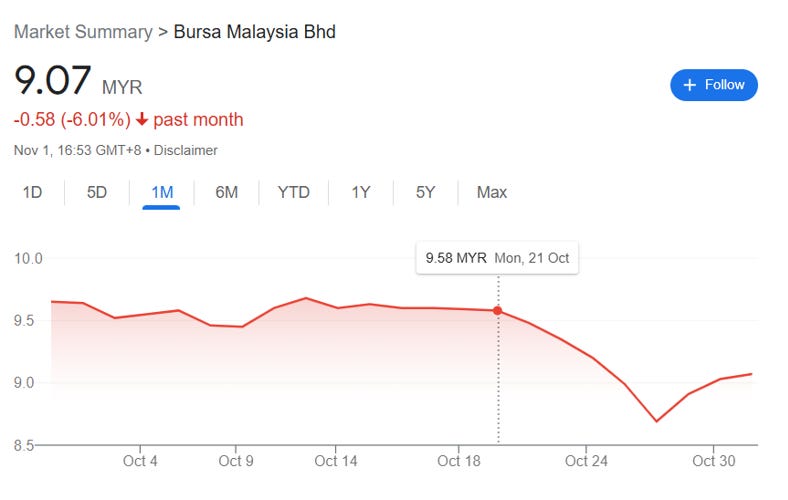Salaries, pension payments & debt repayments constitute major part of 2025 budget
Bursa and Ringgit both dropped since budget reading
While the budget is still being debated in the Dewan Rakyat, since prime minister Anwar Ibrahim delivered it on October 18, public discussion has all but disappeared from the media. Perhaps two indexes, that best sum up the response from financial markets and foreign investors available are the movement of the Bursa Malaysia KLSE Index which has plunged 6.01% since the budget announcement, and the Ringgit, which has moved from RM 4.30 to RM 4.38 on November 1, 2025.
Economist are blaming the US Federal Reserve Bank for lowering US interest rates. However, the budget cannot be absolved from any influence of the Ringgit’s vitality.
Underlying public sector salaries and debt payments a symptom of bigger problems
Public sector salaries and pension payments represent nearly 20% of budget outlays. If the development portion of the budget is taken away, then RM 99.6 billion public sector salaries and RM 34 billion pension payments rise to more than a third of RM 335 billion announced spending.
This signals a very inefficient civil service. There is nothing within the budget to even acknowledge this problem. With all the funds spent of digitization and calls for INDUSTRY 4.0, there is no sign of any benefits in the budget. Inefficiency within government looks like an albatross around the government’s head.
In addition, debt service of RM 44 billion is 13% of government outlays. With the addition of a budget deficit of RM 86 billion, there are no signs the government is making any attempt to remedy the governments debt problem. Inflation and future generations of leaders are being left to solve this problem.
Finally, its not difficult to see a lot of wastage in spending. The budget could have been trimmed very easily into surplus, without affecting much. Many programs have few beneficiaries.
No economics commentators have looked deep into the above issues. The budget was delivered and just forgotten about.
Subscribe Below:






Lowering the U.S. interest rate would be beneficial for the ringgit. But part of the enthusiasm a month or so ago when the Fed dropped rates was that another was expected this year. Recent US job stats now put additional rate cuts in question. This is partially responsible for the ringgits decline. Unfortunately the ringgit is subject to outside influences more than those from within Malaysia.